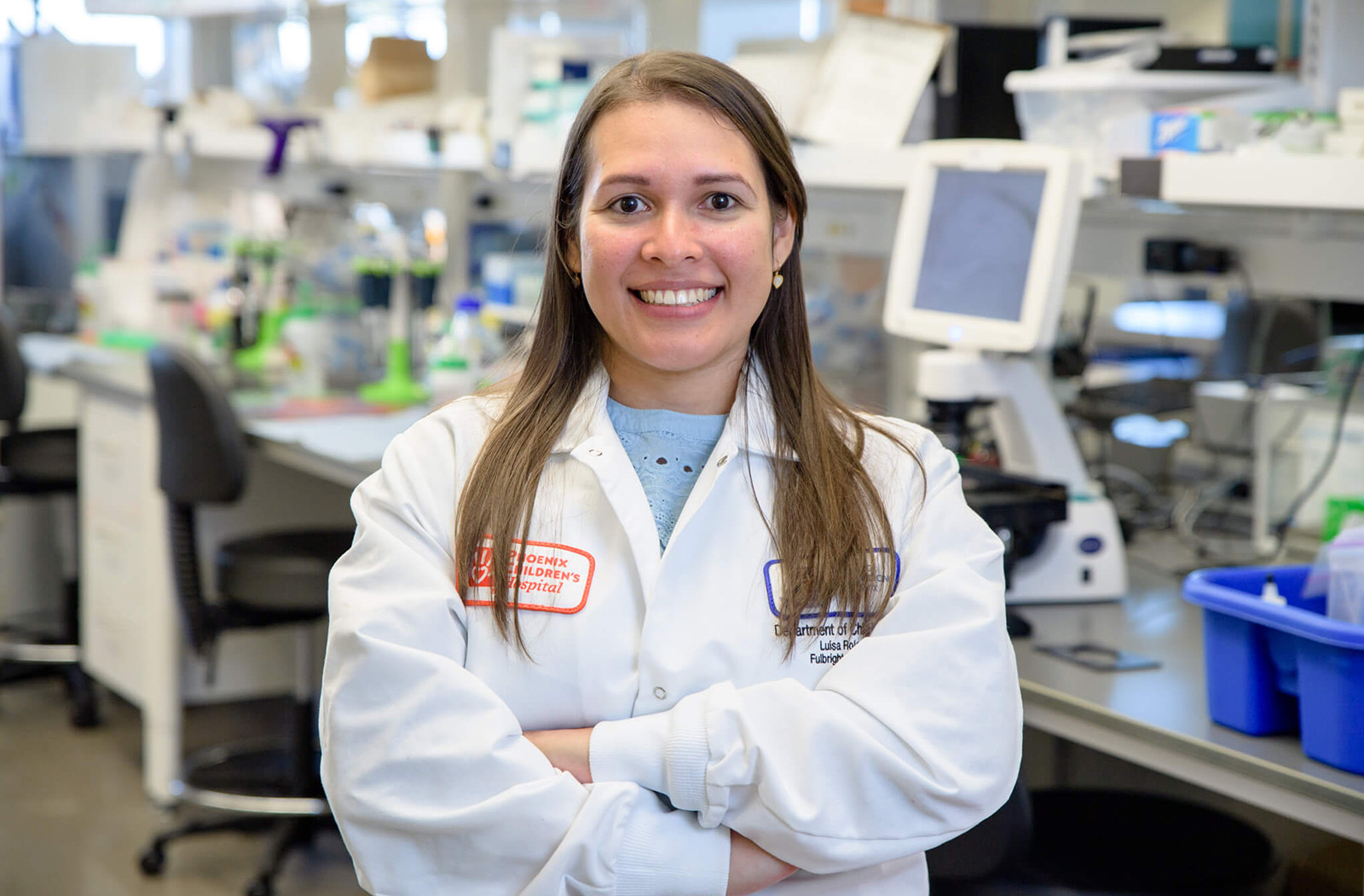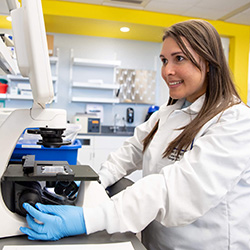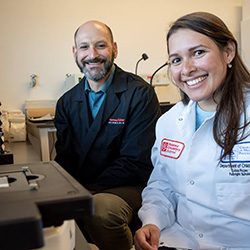
University’s Data Science Institute Awards Fellowship to Postdoctoral Candidate

Clinical Translational Sciences PhD candidate, Luisa Maria Rojas, MS, has been selected for the Data Science Fellowship (DSF) by the University of Arizona’s Data Science Institute.

“The successful completion of this study provides insights into new therapeutic treatments for TBI,” Rojas said. “Dietary therapies that complement the clinical treatments will put the patients in a better position for recovery after a brain injury.”
The DSF is an opportunity for field trainees to learn data science principals, tools and resources to accelerate the data analysis in their research groups. The fellowship also covers half of the fellow’s stipend for a year.
“For me, the DSF is the opportunity to learn about a whole new field of work,” Rojas said. “It provides a training period in open data science and the opportunity to give back to the community the knowledge acquired during the training.”
Rojas has been fascinated by neuroscience since high school and said the inflammatory response after a brain injury interested her.
She became motivated to pursue this line of research after witnessing the digestive issues and infections that TBI patients have. “The study of the gut microbiome is not invasive and could give us important information about the recovery process after TBI,” she said.
Rojas discovered her mentor Jonathan Lifshitz, PhD, through his publications on inflammation after brain injury.
Dr. Lifshitz is a professor in the Department of Child health at the University of Arizona College of Medicine – Phoenix and Phoenix Veterans Affairs Health Care System. He leads the Neurotrauma and Social Impact team and is a leader in the field of TBI research.

“When I joined the lab, I realized early on that I was in a supportive environment; all the lab members made me feel at home,” Rojas said. “Dr. Lifshitz has influenced my research in the way to perceive the patients, to consider the social and personal aspects of the patients that modified and influenced recovery after a brain injury.”
She also credits the many mentors who’ve influenced her over the years and have helped her get the Fulbright scholarship.
After she completes her dissertation, she will pursue an academic postdoctoral position in a translational research laboratory. Rojas also hopes to develop a career in academia as an independent investigator.
“As a woman from Colombia and a Fulbright scholar, I am committed to promoting cultural interchange, diversity and equity throughout my career,” Rojas said. “My goal is to become a high-quality researcher and to prioritize mentoring students and trainees.”
Topics
About the College
Founded in 2007, the University of Arizona College of Medicine – Phoenix inspires and trains exemplary physicians, scientists and leaders to advance its core missions in education, research, clinical care and service to communities across Arizona. The college’s strength lies in our collaborations and partnerships with clinical affiliates, community organizations and industry sponsors. With our primary affiliate, Banner Health, we are recognized as the premier academic medical center in Phoenix. As an anchor institution of the Phoenix Bioscience Core, the college is home to signature research programs in neurosciences, cardiopulmonary diseases, immunology, informatics and metabolism. These focus areas uniquely position us to drive biomedical research and bolster economic development in the region.
As an urban institution with strong roots in rural and tribal health, the college has graduated more than 1,000 physicians and matriculates 130 students each year. Greater than 60% of matriculating students are from Arizona and many continue training at our GME sponsored residency programs, ultimately pursuing local academic and community-based opportunities. While our traditional four-year program continues to thrive, we will launch our recently approved accelerated three-year medical student curriculum with exclusive focus on primary care. This program is designed to further enhance workforce retention needs across Arizona.
The college has embarked on our strategic plan for 2025 to 2030. Learn more.